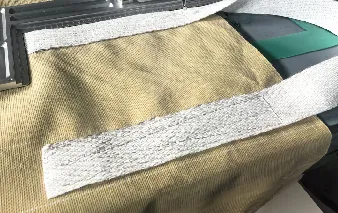Industrial Leather Processing Equipment for Enhanced Production Efficiency and Quality Improvement
Innovations in Industrial Leather Machinery
The leather industry, known for its rich history and extensive craftsmanship, is evolving rapidly due to advances in technology. At the forefront of this revolution is the development of industrial leather machinery, which plays a pivotal role in improving efficiency, consistency, and sustainability in leather production.
The Role of Industrial Leather Machinery
Industrial leather machinery encompasses a wide range of equipment used for various stages of leather production. From tanning to finishing, these machines are designed to enhance the quality of leather while streamlining processes. Traditionally, many of these operations were labor-intensive, requiring skilled artisans to manually handle each step. However, the integration of machinery has transformed the landscape.
One notable advancement is in the tanning process, a crucial stage that determines the leather's quality and durability. Modern tanning machines utilize advanced technologies that allow for precise control over temperature, pressure, and chemical application. This precision not only ensures consistent quality but also reduces the environmental impact by minimizing waste and using less water than traditional methods.
Automation and Efficiency
The shift towards automation in industrial leather machinery has brought about significant improvements in production efficiency. Automated cutting machines, for instance, utilize computer-aided design (CAD) technology to create patterns that maximize the use of raw materials. This reduces waste and ensures that every piece of leather is utilized effectively. Furthermore, these machines can operate at high speeds, dramatically increasing output without compromising on quality.
Another area where automation has made strides is in the finishing process. Automated finishing machines can apply dyes, oils, and protective coatings with remarkable consistency. This uniformity not only enhances the aesthetic appeal of the leather but also contributes to its longevity. Moreover, these machines can be programmed for various finishes, allowing manufacturers to quickly adapt to changing market demands.
industrial leather machine

Sustainability in Leather Production
As the global demand for sustainable practices increases, the leather industry is also making concerted efforts to reduce its environmental footprint. Industrial leather machinery is becoming more eco-friendly, employing technologies that utilize natural tanning agents and recycling water used in the production process. For instance, newer machines are capable of reclaiming and treating wastewater, which can then be reused in subsequent stages of production.
Moreover, many manufacturers are now focusing on sourcing raw materials responsibly
. Industrial machinery can now be integrated with traceability systems that help ensure the leather comes from sustainable sources, further contributing to the industry's commitment to sustainability.The Future of Industrial Leather Machinery
Looking ahead, the future of industrial leather machinery appears promising. The rise of artificial intelligence (AI) and machine learning is expected to further revolutionize the industry. AI-driven systems can analyze data from production processes in real-time, allowing for immediate adjustments and enhancements to improve efficiency and quality.
Moreover, as the market diversifies with the introduction of new materials and textures, industrial leather machinery will need to adapt. The design and engineering of these machines will likely focus on versatility, enabling them to handle not only traditional leather but also synthetic alternatives and composite materials.
Conclusion
In conclusion, industrial leather machinery is reshaping the leather industry by enhancing production efficiency, ensuring consistent quality, and promoting sustainable practices. As technology continues to advance, these machines will play an increasingly vital role in meeting the demands of an evolving market. Embracing innovation will allow leather manufacturers to continue their traditions while adapting to modern challenges, ensuring that leather remains a desirable and sustainable material for generations to come.
-
Boost Production Efficiency with a Pattern Sewing MachineNewsAug.29,2025
-
Industrial Excellence with the Best Heavy Duty Sewing MachineNewsAug.29,2025
-
Precision and Power with the Best Pattern Sewing MachineNewsAug.29,2025
-
Reliable Bulk Packaging Starts With the Right FIBC Sewing MachineNewsAug.29,2025
-
Advanced Packaging Solutions: Elevate Productivity with Jumbo Bag Sewing Machine and Industrial Stitching EquipmentNewsAug.29,2025
-
High-Performance Solutions for Bulk Packaging: FIBC Sewing Machine and MoreNewsAug.29,2025
-
Maximize Efficiency with an Industrial Cylinder Arm Sewing MachineNewsAug.28,2025


























